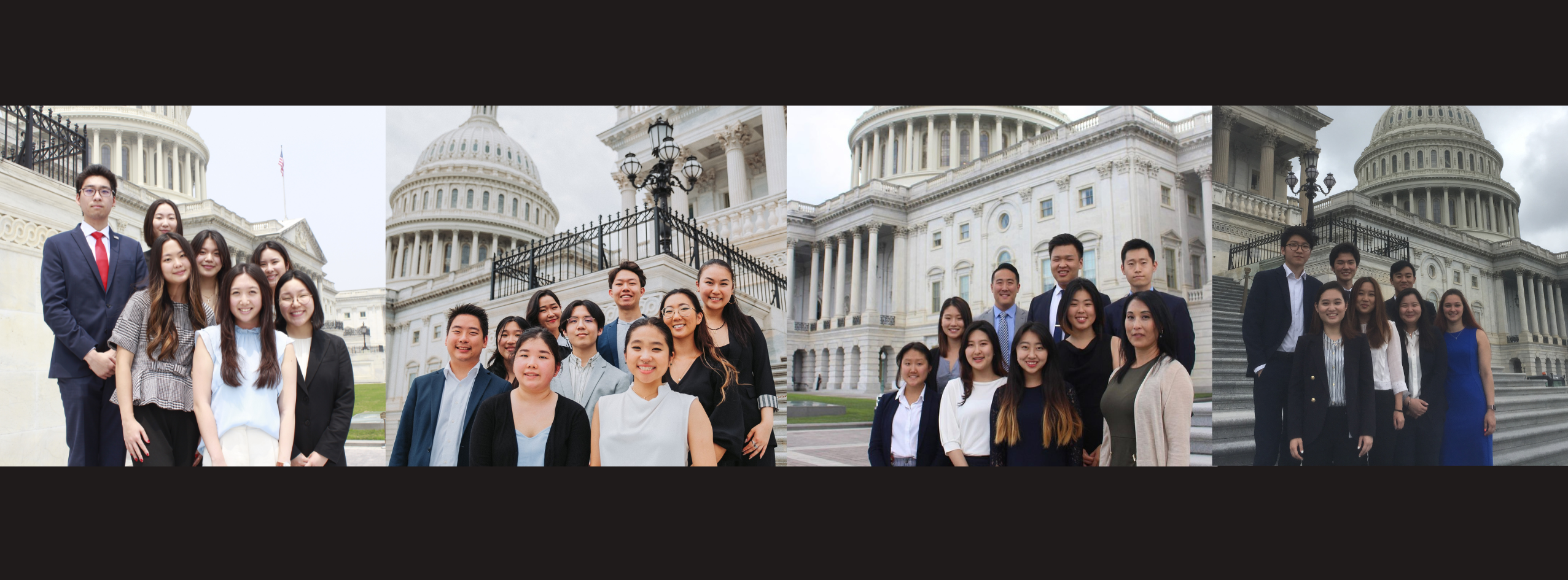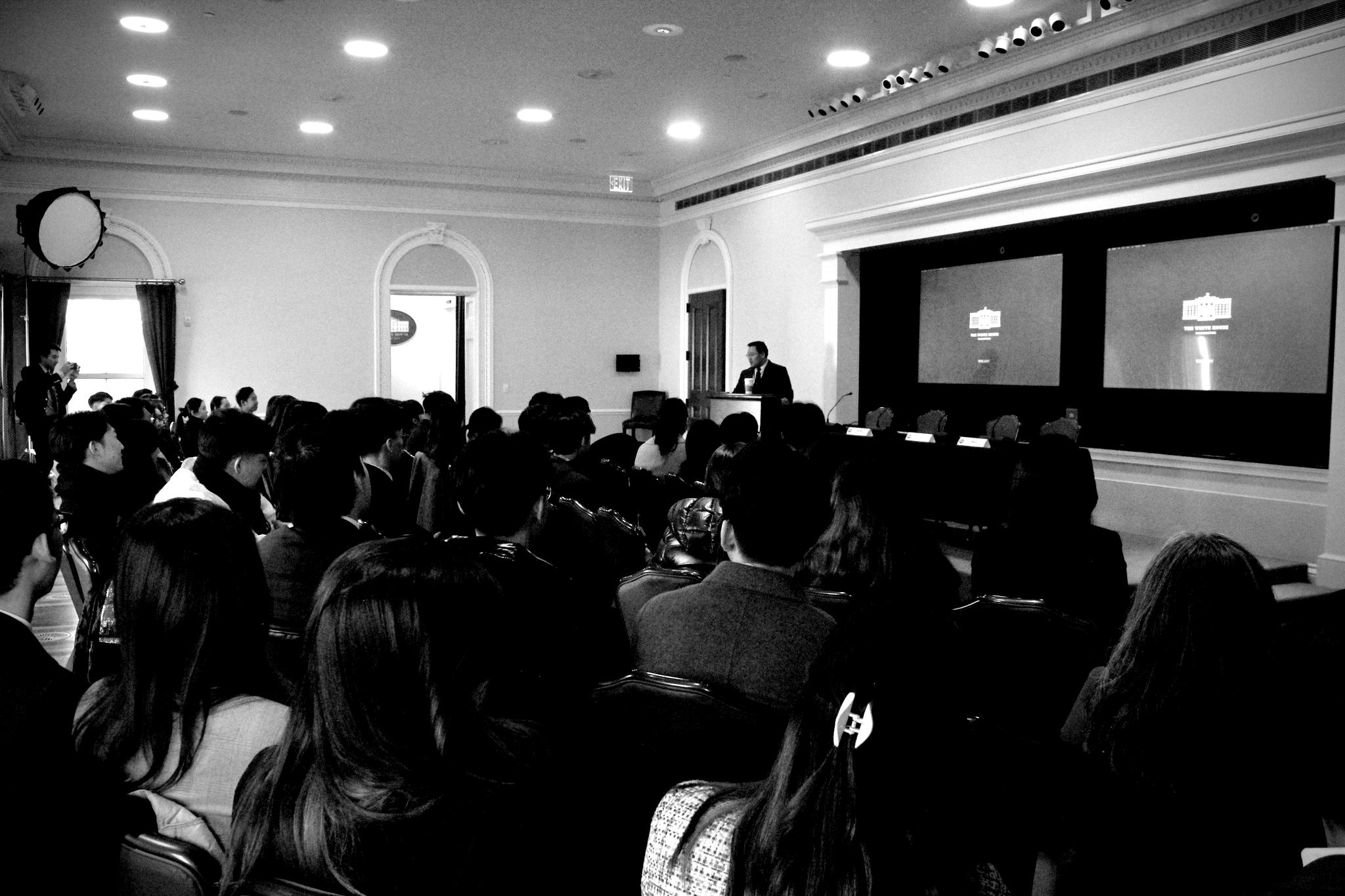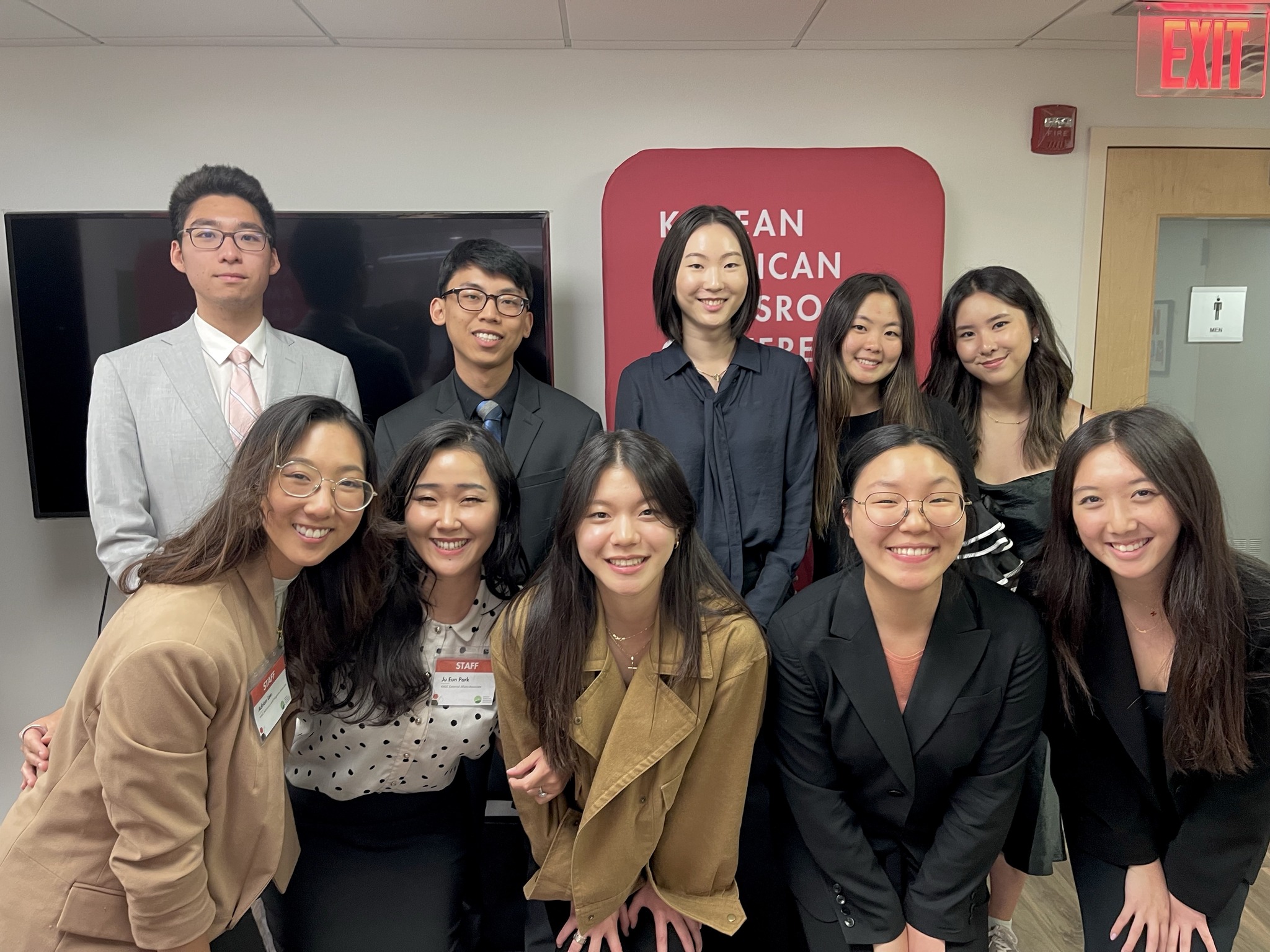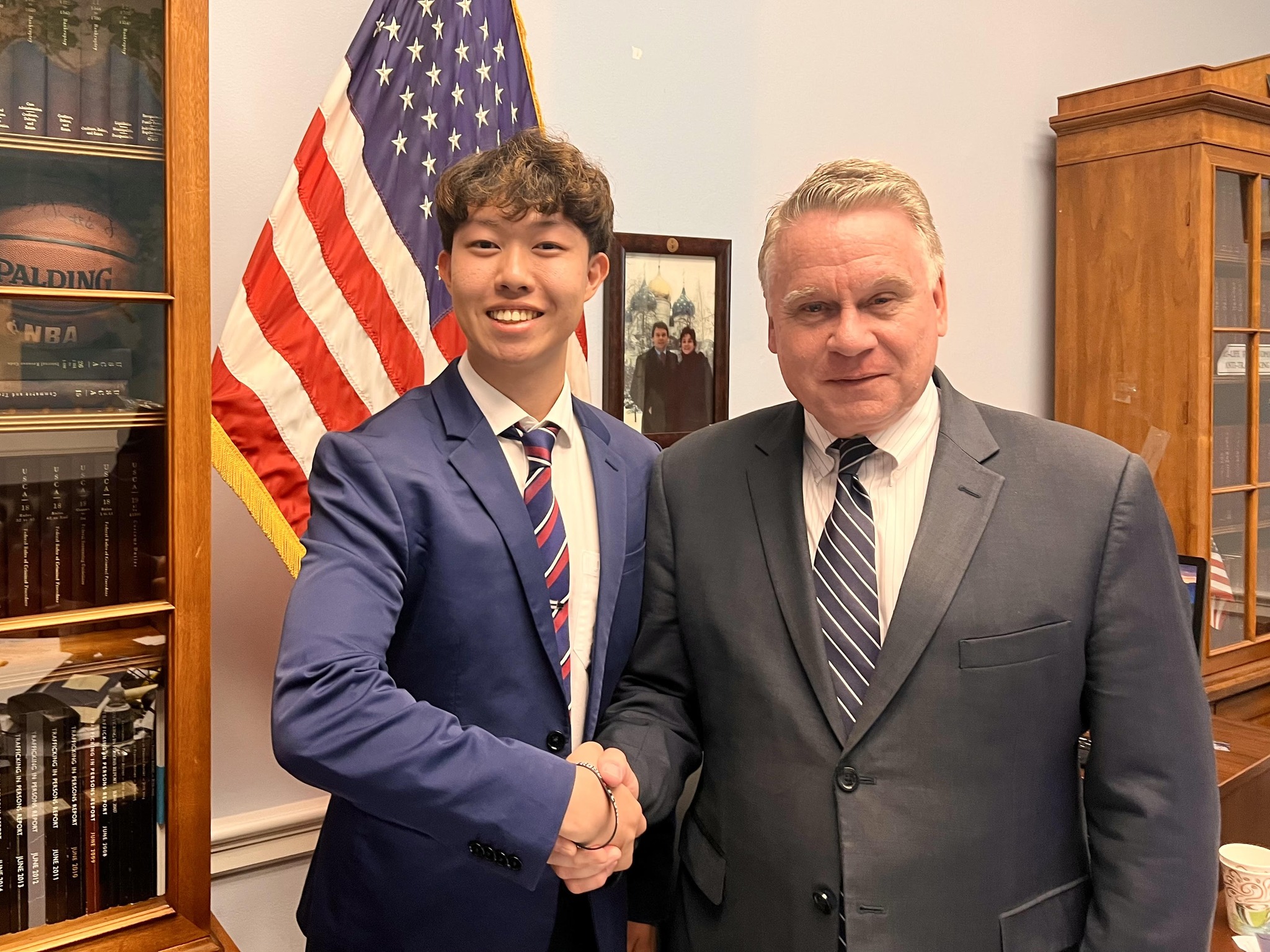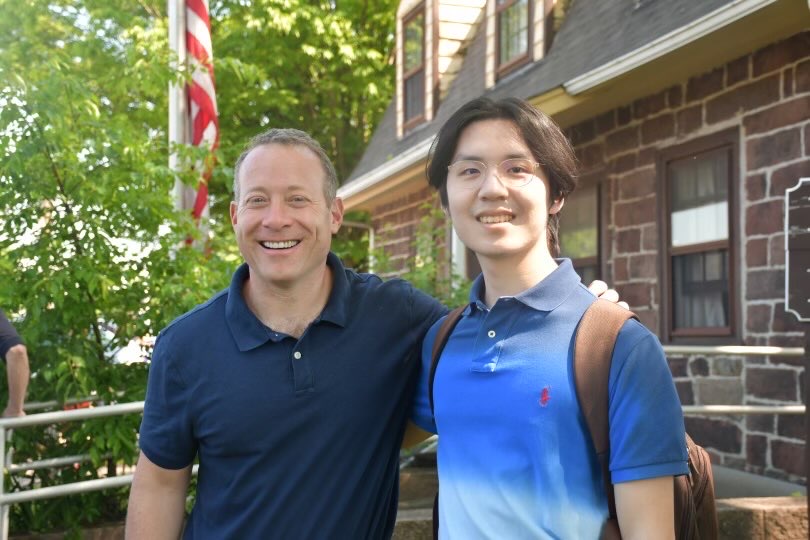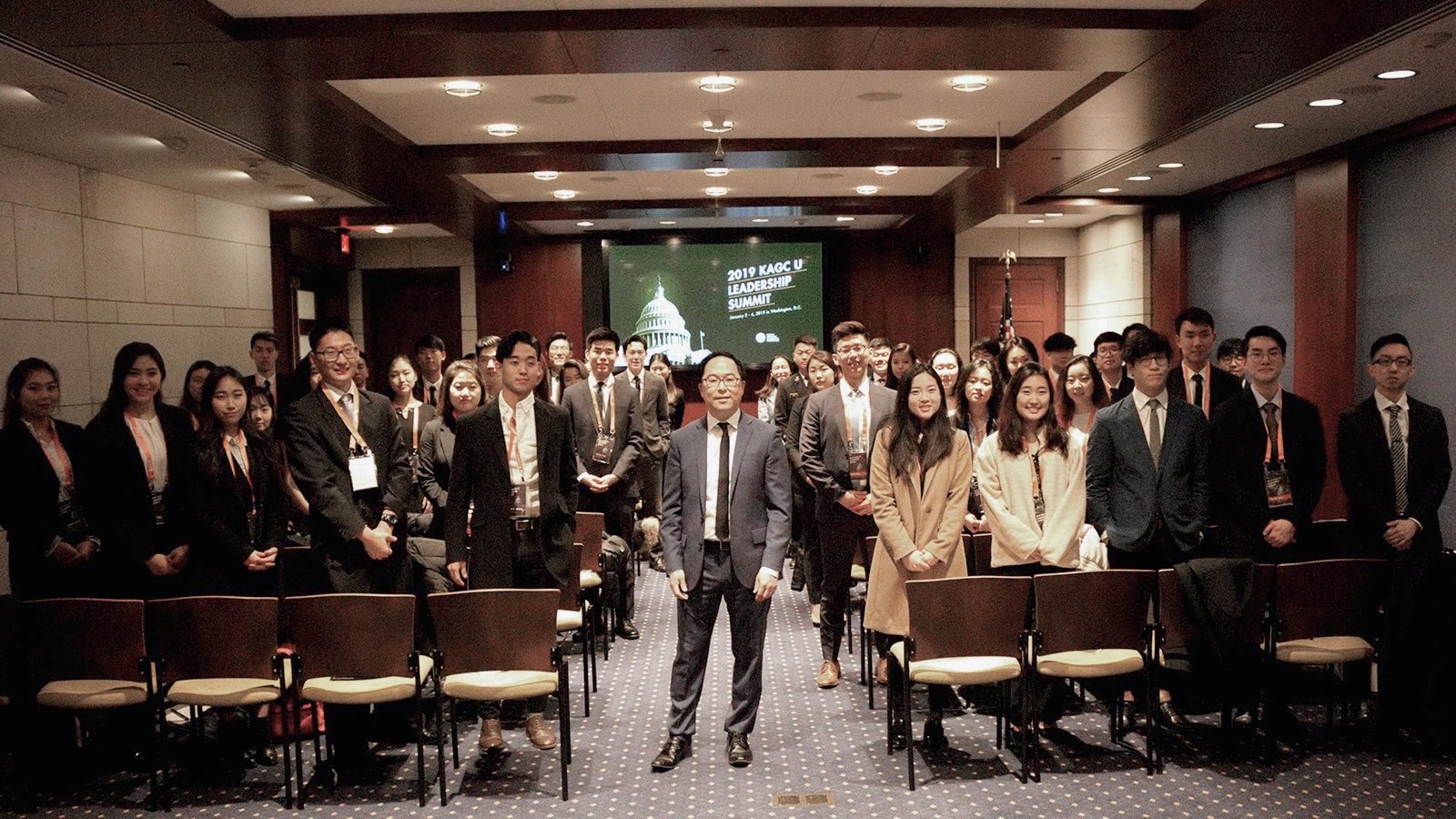
Program
KAGC Academy invites Korean American college students, young professionals, and organizations in the DMV area to participate in mentorship programs, lectures, or field trips. The goal is to foster grassroots civic engagement among Korean Americans and enhance understanding of American politics.
KAGC Academy
Event
The KAGC students had the fortunate opportunity to incorporate an invitation from the Democratic National Committee to speak with their AAPI staffers at their headquarters. Students were able to gain first-hand insights and knowledge behind the career pathways for the AAPI community members to get engaged with U.S. politics from a wide variety of backgrounds.
DNC Panel
KAGC Congressional Fellows were given a private tour of the old Korean Legation Museum and paid their respects at the Korean War Veterans Memorial.
U.S.-ROK Alliance Tour
Congressional Fellowship Students
22
Congressional Offices
SIGN UP FOR MAILING LIST
Subscribe to our newsletter for exclusive content and updates on civic engagement.
